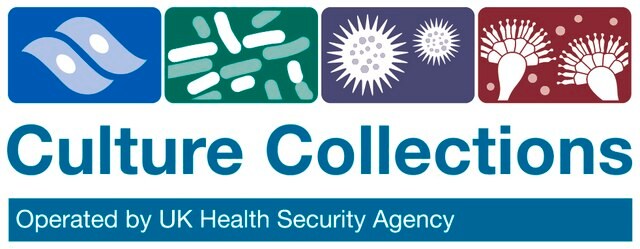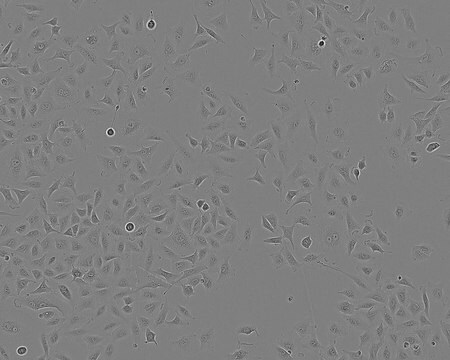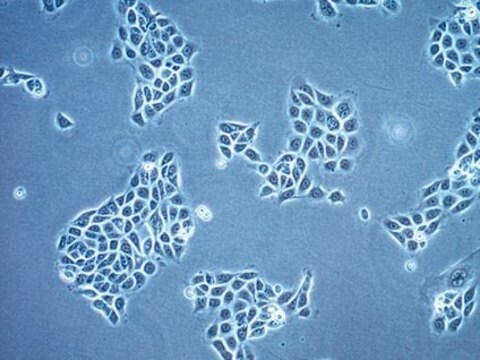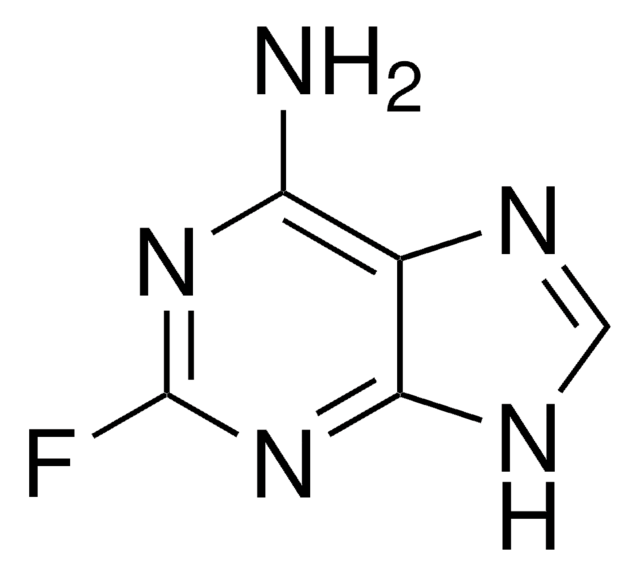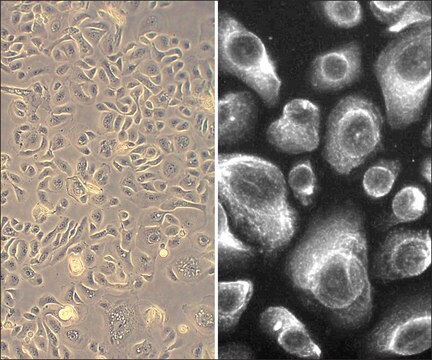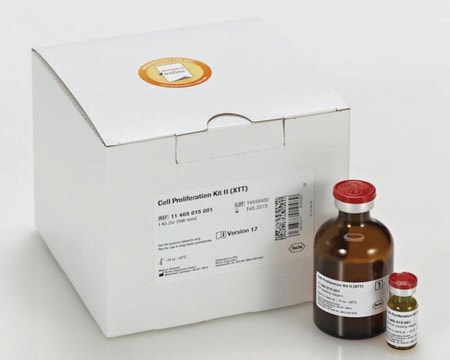94072246
RPMI 7932 cell line
94072246, human lung effusion, Epithelial-like morphology
About This Item
Produits recommandés
Nom du produit
RPMI 7932 cell line,
Source biologique
human lung (effusion)
Niveau de qualité
Forme
liquid
Mode de croissance
Adherent
Caryotype
Not specified
Morphologie
Epithelial-like
Produits
Plasminogen activator
Récepteurs
Not specified
Technique(s)
cell culture | mammalian: suitable
Maladie(s) pertinente(s)
cancer
Conditions d'expédition
dry ice
Température de stockage
−196°C
Origine de la lignée cellulaire
Description de la lignée cellulaire
Application
Milieu de culture
Procédure de repiquage
Autres remarques
Clause de non-responsabilité
Code de la classe de stockage
10 - Combustible liquids
Classe de danger pour l'eau (WGK)
WGK 3
Point d'éclair (°F)
Not applicable
Point d'éclair (°C)
Not applicable
Faites votre choix parmi les versions les plus récentes :
Certificats d'analyse (COA)
Désolés, nous n'avons pas de COA pour ce produit disponible en ligne pour le moment.
Si vous avez besoin d'assistance, veuillez contacter Service Clients
Déjà en possession de ce produit ?
Retrouvez la documentation relative aux produits que vous avez récemment achetés dans la Bibliothèque de documents.
Notre équipe de scientifiques dispose d'une expérience dans tous les secteurs de la recherche, notamment en sciences de la vie, science des matériaux, synthèse chimique, chromatographie, analyse et dans de nombreux autres domaines..
Contacter notre Service technique